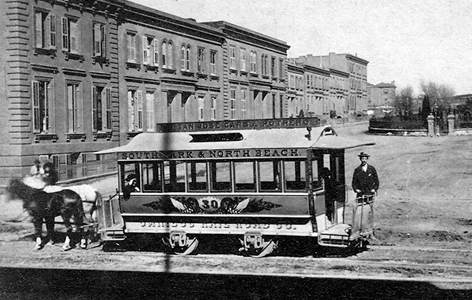
Charlotte L. Brown, was the daughter of James E. Brown, a slave, and Charlotte Brown, a free seamstress. Her family
moved from Baltimore, MD to San Franscio, CA.
On April 17, 1863, she boarded a horse-drawn streetcar, she was approached by the conductor and he ordered her off. “I
have a right to ride,” she said, looking the conductor dead in the eyes. “When the conductor came to me, I handed him my
ticket,” she said. “He refused to take it. It was one of the Omnibus Railroad tickets, One that I had purchased of them
previous to that time. He replied that colored persons were not allowed to ride. I told him I had been in the habit of
riding ever since the cars had been running. I answered that I had a great ways to go and I was later than I ought to
be.” A white-woman objected to Ms. Brown’s presence on the streetcar the conductor grabbed her arm and escorted her off
the car.
Her father hired W.C. Burnett, an attorney,to file a lawsuit against Omnibus for $200. It was the first year in which
black Americans could bring lawsuits against white Americans. The jury awarded her twenty-five dollars and the
conductor, was convicted of assault and battery against Brown.
Just three days after the trial, Brown was ejected from yet another streetcar and brought a second suit against Omnibus,
this time for $3,000. In his judgment of October 5, 1864, Judge Orville C. Pratt of the 12th District Court upheld the
earlier verdict in favor of Brown, ruling that excluding passengers from streetcars because of their race was illegal.
He had no desire, he said in his ruling, to "perpetuate a relic of barbarism";"It has been already quite too long tolerated by the dominant race to see with indifference the negro or mulatto treated
as a brute, insulted, wronged, enslaved, made to wear a yoke, to tremble before white men, to serve him as a tool, to
hold property and life at his will, to surrender to him his intellect and conscience, and to seal his lips and belie his
thought through dread of the white man's power", Judge Pratt stated. In January 1865, a jury awarded Brown $500.
Sources: